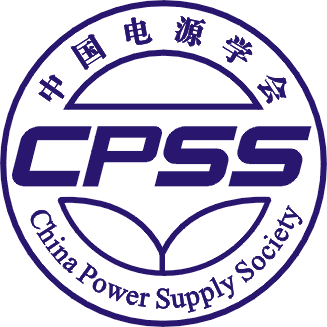About IEEE Empower a Billion Lives - Pacific Asia Regional
IEEE Empower a Billion Lives (EBL) organized by the IEEE Power Electronics Society is a global competition aimed at fostering innovation to develop solutions to electricity access. Solutions are expected to be scalable, regionally relevant, holistic, and leverage 21st century technologies with exponentially declining prices.
Pacific-Asia regional which is one of the EBL regional competitions is organized by IEEE Power Electronics Society (PELS) and China Power Supply Society (CPSS).
Organizations
Organizer: 
Pacific-Asia Regional organizer: 

Supporter: 




The Goal of the Competition
There are 3 billion people in the world living in energy poverty, and over 1 billion people without any access to electricity. So far, only 1.8 million people have gained tier 2 energy access by using off-grid electric services.
To address energy poverty, more of the same may not be the answer. New strategies are needed to scale energy access solutions 1000x.
EBL competititon foster interdisciplinary innovation in the global community to develop and demonstrate solutions to electricity access that are designed to scale, regionally relevant, holistic, and lever-age 21st century technologies that feature exponentially declining prices.
A different type of competition
The IEEE Empower a Billion Lives competition is agnostic to energy sources, technologies, and business models. Solutions will be evaluated on both their technical innovation and business viability to rapidly and sustainably scale to one billion customers.
The competition is completely open to all, including student groups, small- and medium-sized companies, research labs, international corporations, and non-profit organizations.
The competition is organized by IEEE, an all-volunteer organization whose goal is to foster technological innovation and excellence for the benefit of humanity.
Target customer community
Solutions are expected to serve customers with the following characteristics and needs.
- Off-grid or have access < 2 hours a day
- Purchasing power below global poverty line (< $1.90/day)
- 90% live in rural areas
- < 50% have bank accounts
- < 50% have smart phones
Target Electricity Needs
Tier 2 electricity access (200 Wh/day) and above including:
| Household uses: lighting and phone charging, telecommunication, entertainment, air circulation, refrigeration, water pumping, etc. | |
| Community uses: public lighting, water pumping & purification, etc. | |
| Productive uses: agricultural manufacturing, light manufacturing, commerce, etc. | |
Competition tracks
The competition has four tracks, arranged by type of model and type of solution.
| Commercially available solutions | Emerging solutions | |
| Track 1 Decentralized models |
Track 1A Example solutions could include: solar home systems, pay-go systems |
Track 1B Example solutions could include: new household-level ideas that may interconnect |
| Track 2 Centralized utility models |
Track 2A Example solutions could include: mini- and micro-grids |
Track 2B Example solutions could include: Top-down solutions with a system operator |
Important Date
- Team Registration with Preliminary Proposal
May 31, 2018June 30, 2018 - Submission of Proposal Aug. 31, 2018
- Notification of Regional Final Team Sept. 15, 2018
- Submission of Final Reports Oct. 25, 2018
- Regional Final of Evaluation at IEEE PEAC Shenzhen, China Nov. 3, 2018
- Award Ceremony of Pacific-Asia Nov. 6, 2018
- Global Final at IEEE ECCE Baltimore, USA Sept. 2019
Committee of Pacific-Asia Regional
Steering Committee
Chair:
Mark Dehong Xu, Zhejiang Univ.
Members:
Sewan Choi, Seoul National Univ.of Sci. and Tech.
Yaow-Ming Chen, National Taiwan Univ.
Braham Ferreira, Delft Univ. of Tech.
Jung-Ik Ha, Seoul National Univ.
Jun-ichi Itoh, Nagaoka Univ. of Tech.
Philip T. Krein, UIUC
Dong-Choon Lee, Yeungnam Univ.
Tsorng-Juu Liang, National Cheng-Kung Univ.
Sanjib Panda, National Univ. of Singapore
Toshihisa Shimizu, Tokyo Metropolitan Univ.
Kenji Wada, Tokyo Metropolitan Univ.
Jinfa Zhang, Delta Electronics
Lei Zhang, China Power Supply Society
Regional Organizing Committee
Chair:
Tianhao Tang, Shanghai Maritime Univ.
Co-Chairs:
Jinfa Zhang, Delta Electronics
Jinjun Liu, Xi'an Jiaotong Univ.
Philip T. Krein, UIUC
Members:
Bo Zhang, South China Univ. of Tech.
Xinbo Ruan, Nanjing Univ. of Aeronautics and Astronautics
Xi Xiao, Tsinghua Univ.
Zhengyu Lv, Zhejiang Univ.
Weiping Zhang, North China Univ. of Tech.
Youquan Zhang, Sungrow Power Supply Co., Ltd.
Ping Wang, Tianjin Univ.
Yaojie Sun, Fudan Univ.
Xu Cai, Shanghai Jiao Tong Univ.
Laili Wang, Xi'an Jiaotong Univ.
Chushan Li, ZJU/UIUC Inst.

